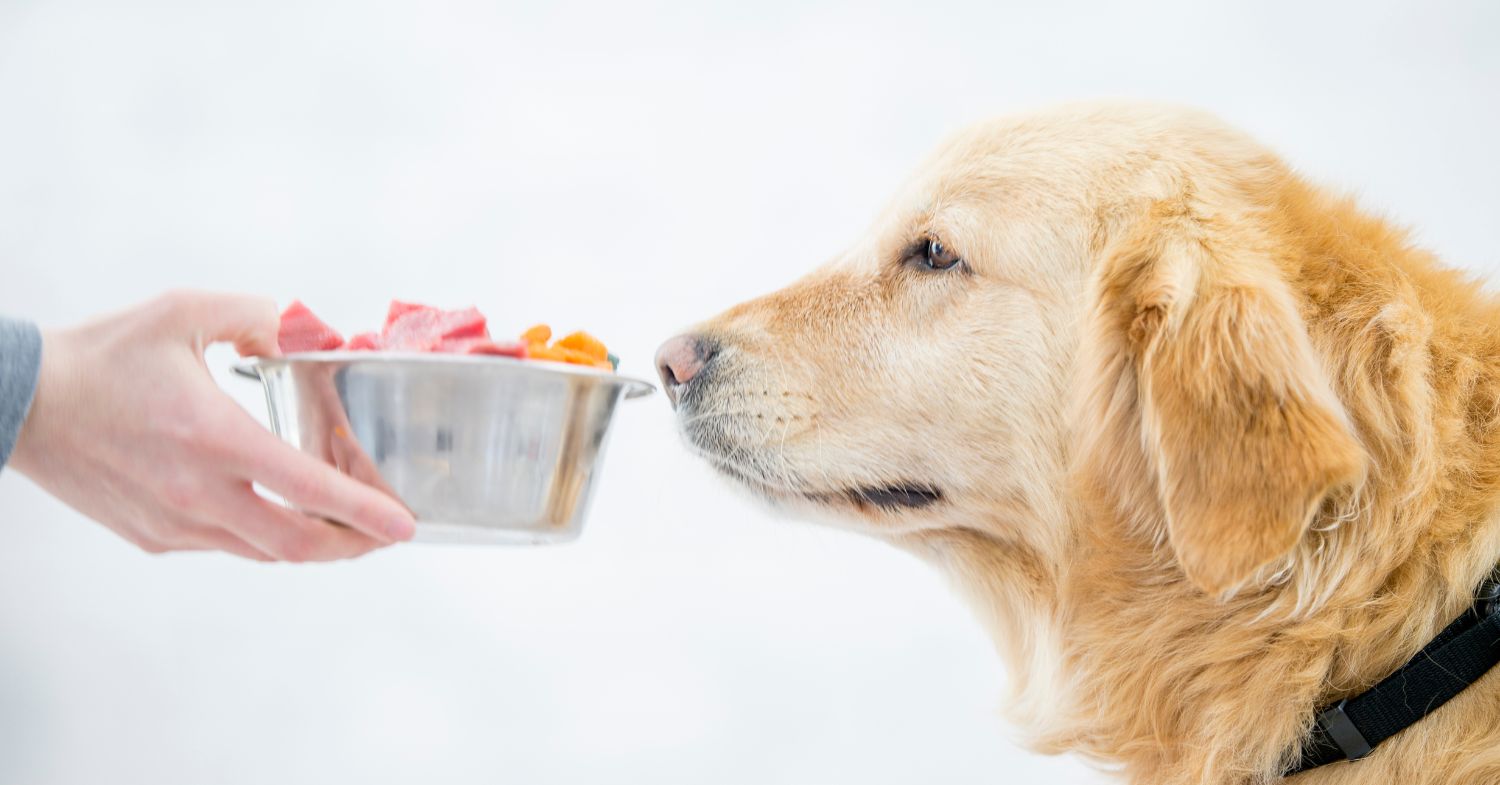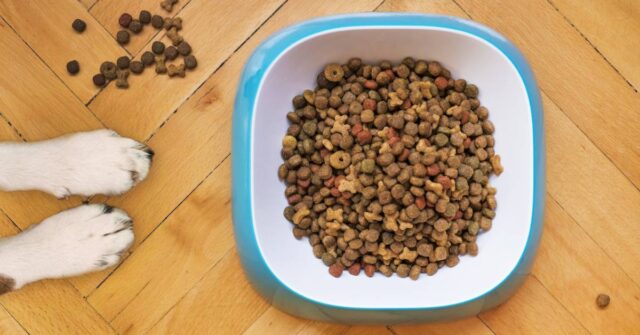As the seasons change, so do the nutritional needs of our furry friends. Just like humans, dogs can benefit from dietary adjustments that align with the weather.
This guide explores the importance of seasonal foods and how to tailor your dog’s diet to ensure they remain healthy and happy all year round.
Understanding Seasonal Dietary Needs for Dogs
Seasonal changes can significantly impact your dog’s dietary needs. Weather conditions affect their metabolism, activity levels, and overall health.
Understanding these changes is crucial to providing the best care for your pet.
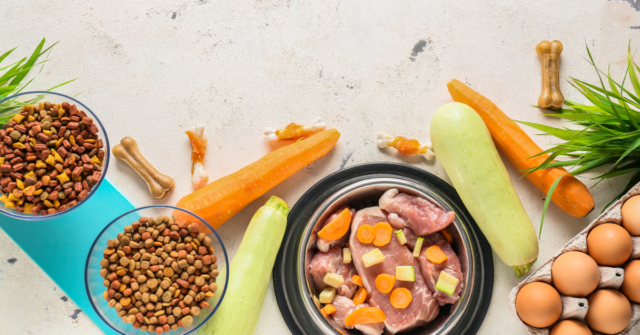

Why Seasonal Changes Matter
The changing seasons bring variations in temperature and daylight, which can influence a dog’s metabolism.
In colder months, dogs may require more energy to maintain body heat, while warmer weather can lead to decreased appetites.
Adjusting their diet according to the season helps maintain their health and energy levels.
The Impact of Weather on Dog’s Metabolism and Activity Levels
During winter, dogs often need more calories to stay warm, especially if they spend a lot of time outdoors.
Conversely, in summer, their activity levels may increase, requiring a different nutritional balance. Monitoring these changes helps prevent issues such as weight gain or dehydration.
Adjusting Your Dog’s Diet for Cold Weather
As temperatures drop, dogs may need a diet richer in calories and nutrients to sustain their energy levels and body warmth. Here are some dietary adjustments to consider during the colder months.
Increased Caloric and Nutritional Requirements
In winter, dogs often burn more calories to keep warm. It’s important to provide foods that are higher in fat and protein, as these nutrients help maintain body heat and energy.
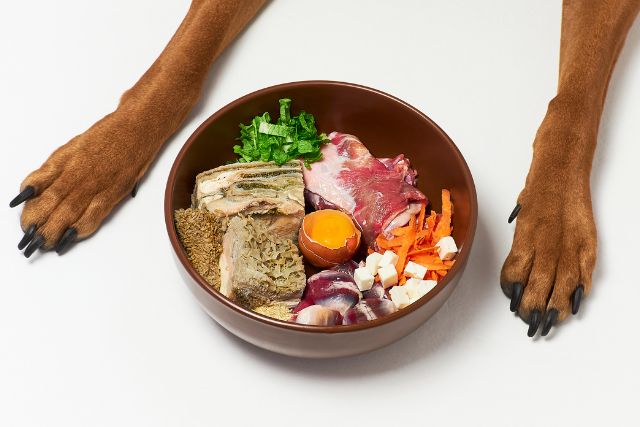

Recommended Foods for Fall and Winter
Certain foods are particularly beneficial for dogs during colder months due to their nutritional profiles.
Turkey: A Lean Protein Source
Turkey is an excellent protein source for dogs in winter. It’s lean but rich in essential nutrients like vitamins B6 and B12, niacin, and selenium.
These nutrients support muscle maintenance, energy production, and immune function.
Sweet Potatoes: Nutrient-Rich and Digestive Health
Sweet potatoes are packed with vitamins A, C, and B6, as well as dietary fibre.
They aid in digestion and provide a steady energy source, making them ideal for maintaining your dog’s health during the colder months.
Maintaining Energy Levels in Cold Weather
High-energy foods help dogs stay active and warm. Incorporate foods that are rich in protein and fat to support their increased caloric needs.
High-Protein and High-Fat Foods
Foods like beef, chicken, and fish are excellent sources of protein and fat. These nutrients are crucial for maintaining muscle mass and providing long-lasting energy.
Managing Weight Gain
While it’s important to increase your dog’s caloric intake in winter, be mindful of overfeeding. Monitor their weight and adjust portions as necessary to prevent unhealthy weight gain.
Special Considerations for Outdoor Dogs
Dogs that spend a lot of time outdoors in winter have unique dietary needs. They require more calories to stay warm and active.
Energy Requirements for Working Dogs
Working dogs or those spending a lot of time outside may need up to 50% more calories than usual. Providing energy-dense foods helps meet these increased demands.
Keeping Dogs Warm with Proper Nutrition
A diet rich in fats and proteins supports your dog’s ability to generate body heat. Consider adding a bit of extra food to their diet or choosing high-calorie treats.


Adjusting Your Dog’s Diet for Warm Weather
In warmer months, dogs need foods that help them stay cool and hydrated. Their caloric needs may decrease, and hydration becomes even more critical.
Lower Caloric Needs and Hydration Importance
As temperatures rise, dogs may be less active and require fewer calories. Ensuring they stay hydrated is essential to prevent heat-related issues.
Recommended Foods for Spring and Summer
Lighter meals with lean proteins and hydrating ingredients are ideal for warm weather.
Lean Proteins for Hot Weather
Foods like chicken and fish are leaner protein sources that are easier to digest in the heat. They help maintain muscle without adding unnecessary fat.
Hydrating Foods and Cooling Treats
Incorporate wet foods or treats that can be frozen to help keep your dog cool. Watermelon and cucumber are great hydrating treats that dogs typically enjoy.
Feeding Tips for Hot Weather
Adjusting feeding routines can help dogs cope with the heat better.
Adjusting Meal Times
Feed your dog during cooler parts of the day, such as early morning or late evening, to prevent them from overheating while eating.
Splitting Meals into Smaller Portions
Smaller, more frequent meals can be easier to digest and help maintain energy levels throughout the day without overwhelming their system.
Ensuring Proper Hydration
Hydration is critical in warm weather. Always provide fresh water and consider additional hydrating options.
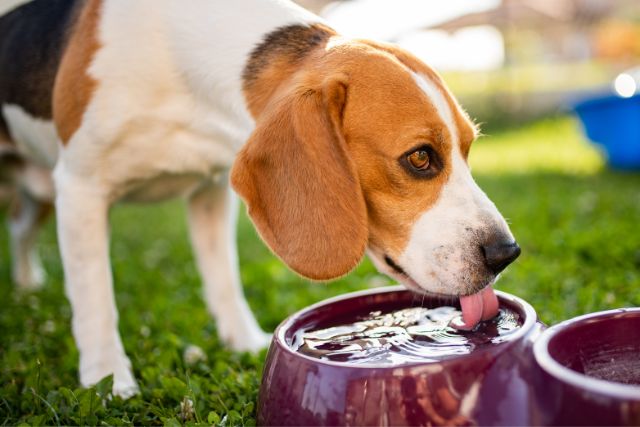

Importance of Water
Ensure your dog always has access to clean, fresh water. Hydration is vital for regulating body temperature and overall health.
Incorporating Wet Foods
Wet foods can be an excellent way to increase your dog’s water intake. They also tend to be more palatable during hot weather.
Seasonal Foods and Their Nutritional Benefits
Incorporating seasonal foods into your dog’s diet can provide essential nutrients and variety, supporting their health throughout the year.
Pumpkins: Rich in Fiber and Beta-Carotene
Pumpkins are high in fibre and beta-carotene, which converts to vitamin A. They support digestive health and boost the immune system.
Apples: Packed with Vitamins and Antioxidants
Apples are a great source of vitamin C and antioxidants. They can aid in digestion and support overall health. Remember to remove the seeds and core before feeding them to your dog.
Sweet Potatoes: High in Fiber and Vitamins
Sweet potatoes provide dietary fibre, vitamins A, C, and B6, and antioxidants. They support digestive health and provide a slow-release energy source.
Incorporating Seasonal Fruits and Vegetables
Using seasonal fruits and vegetables can enhance your dog’s diet. They offer essential nutrients and make meals more interesting.
Homemade Dog Treats
Making treats at home allows you to control the ingredients and provide fresh, healthy snacks. Consider using seasonal produce for added benefits.
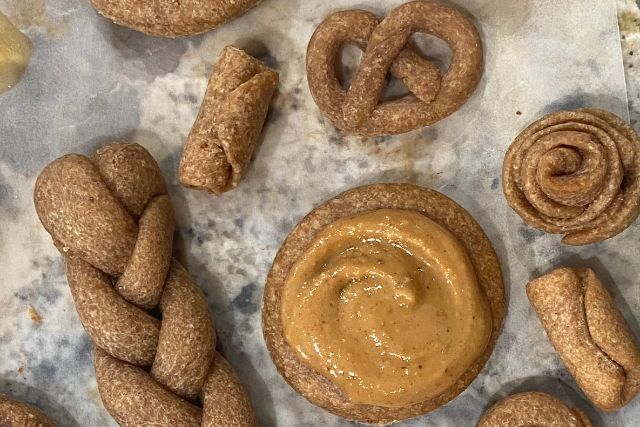

Fresh Ingredients vs. Processed Foods
Fresh, whole foods are generally healthier than processed options. They provide more nutrients and fewer preservatives, contributing to better overall health.
Managing Seasonal Allergies with Diet
Seasonal allergies can affect dogs just as they do humans. Adjusting their diet can help manage these allergies effectively.
Identifying Seasonal Allergies in Dogs
Common signs of seasonal allergies include itching, redness, and ear infections. Consult your vet to confirm if your dog is experiencing seasonal allergies.
Dietary Adjustments to Reduce Allergies
A hypoallergenic diet can help alleviate allergy symptoms. Certain foods and supplements can also support skin health and reduce inflammation.
Hypoallergenic Diets
Hypoallergenic diets typically exclude common allergens such as beef, chicken, and grains. Instead, they use novel proteins and carbohydrates.
Supplementing with Omega-3 Fatty Acids
Omega-3 fatty acids can help reduce inflammation and improve skin health. Consider fish oil supplements or foods rich in these nutrients.


Bathing and Grooming Tips
Regular grooming and bathing can help manage allergy symptoms by removing allergens from your dog’s coat.
Using Oatmeal Shampoos
Oatmeal shampoos can soothe irritated skin and provide relief from itching. They are gentle and suitable for frequent use.
Frequent Wipe-Downs After Outdoor Activities
After outdoor play, wipe down your dog with a damp cloth to remove pollen and other allergens from their fur. This can help minimize allergic reactions.
Consulting Your Veterinarian
Always consult your veterinarian before making significant changes to your dog’s diet. They can provide personalized advice based on your dog’s specific needs.
Importance of Professional Guidance
Your veterinarian can help ensure that dietary changes are safe and beneficial for your dog. They can also recommend supplements or specific foods to address health concerns.
Regular Check-Ups and Weight Monitoring
Regular veterinary check-ups are essential for monitoring your dog’s health, especially when adjusting their diet seasonally.
Weight monitoring helps ensure that your dog maintains a healthy weight, preventing obesity or malnutrition.
Your vet can provide tailored advice on portion sizes and food choices based on your dog’s specific needs.
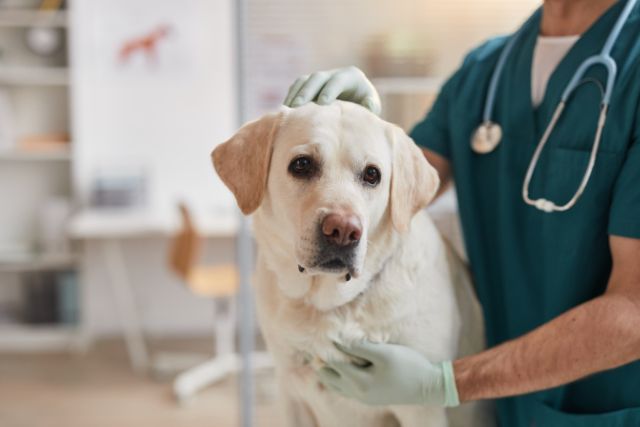

Tailoring Diet to Individual Dog Needs
Every dog is unique, and their dietary needs can vary widely based on factors such as age, breed, size, and health status.
Consulting with your veterinarian ensures that any dietary changes are appropriate for your dog’s individual requirements.
They can recommend specific foods or supplements that support your dog’s health, particularly if they have any underlying conditions.
Conclusion
Adjusting your dog’s diet according to the seasons can significantly enhance their overall well-being.
By understanding their nutritional needs and making informed dietary choices, you can help your furry friend stay healthy, happy, and active throughout the year.
Remember, always consult with your veterinarian before making any significant changes to your dog’s diet.
With the right approach, you can provide your dog with the best possible care, ensuring they thrive in every season.

